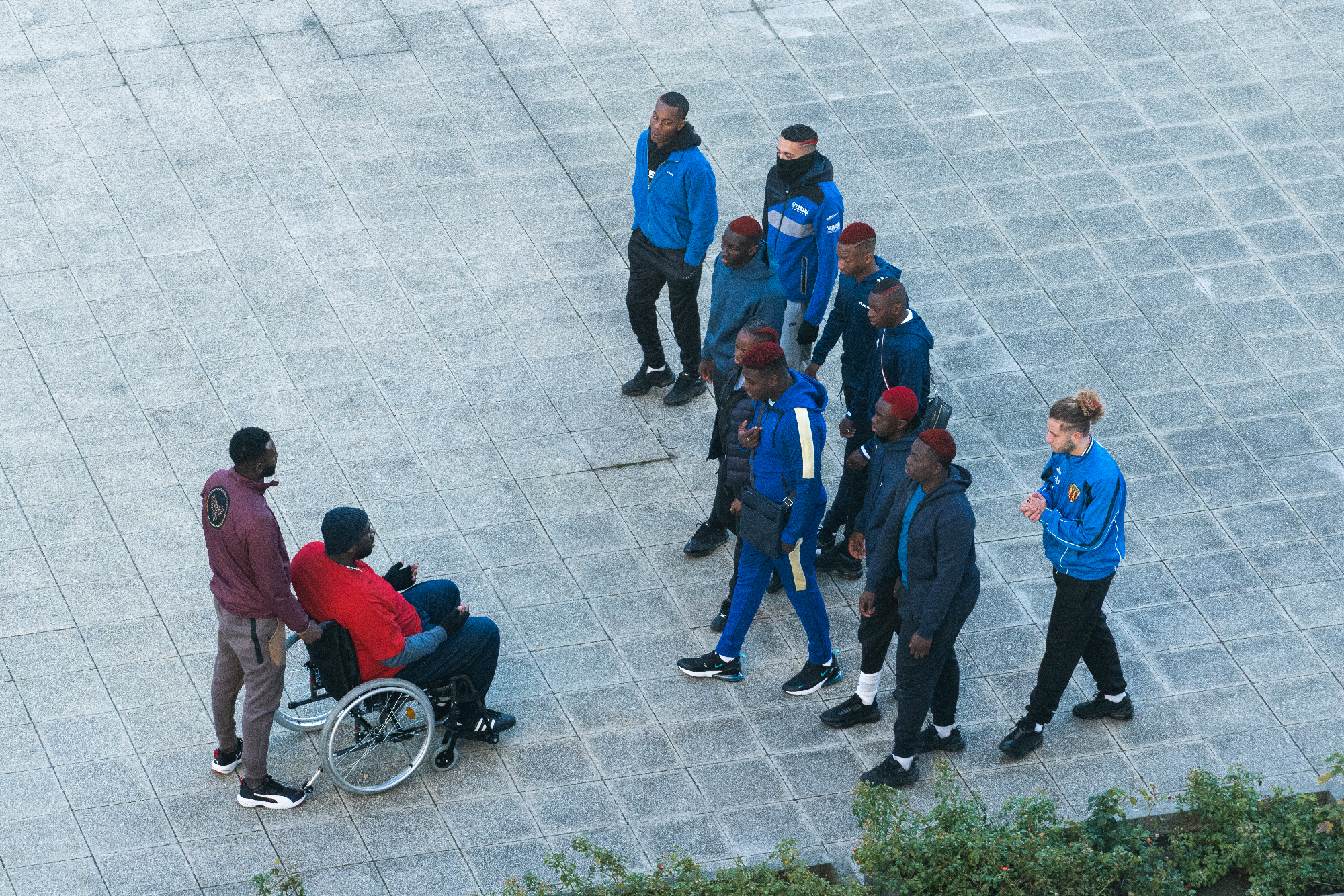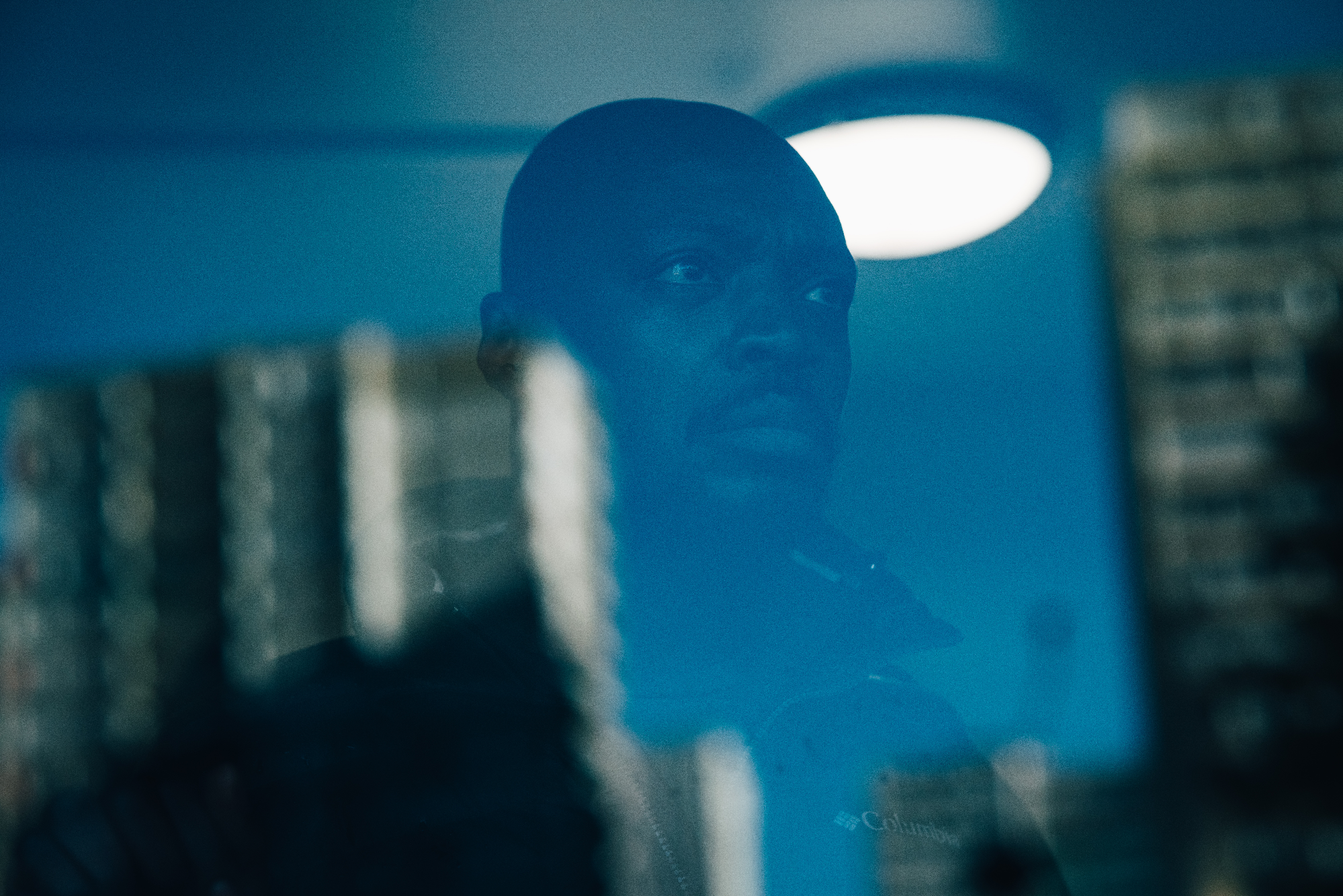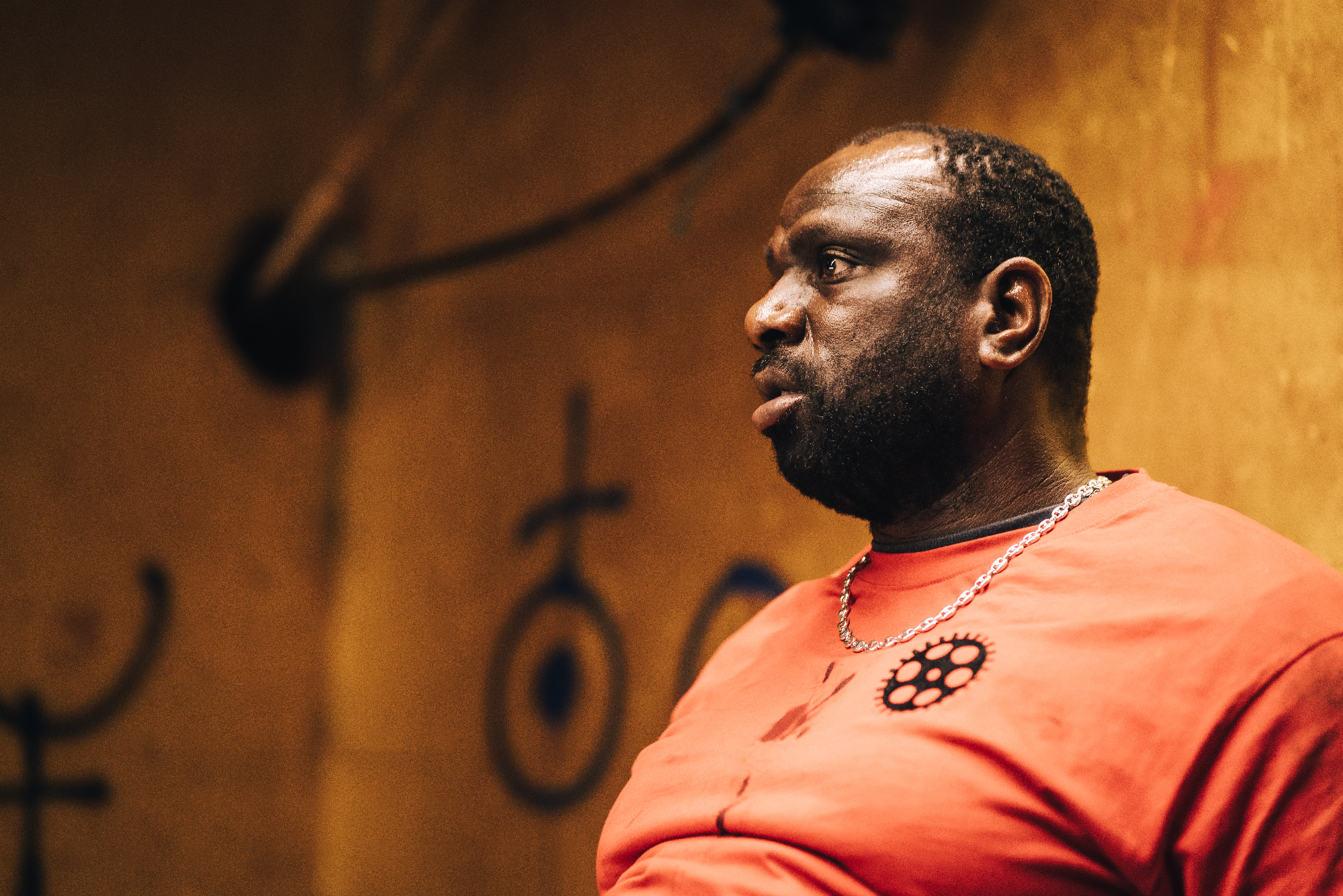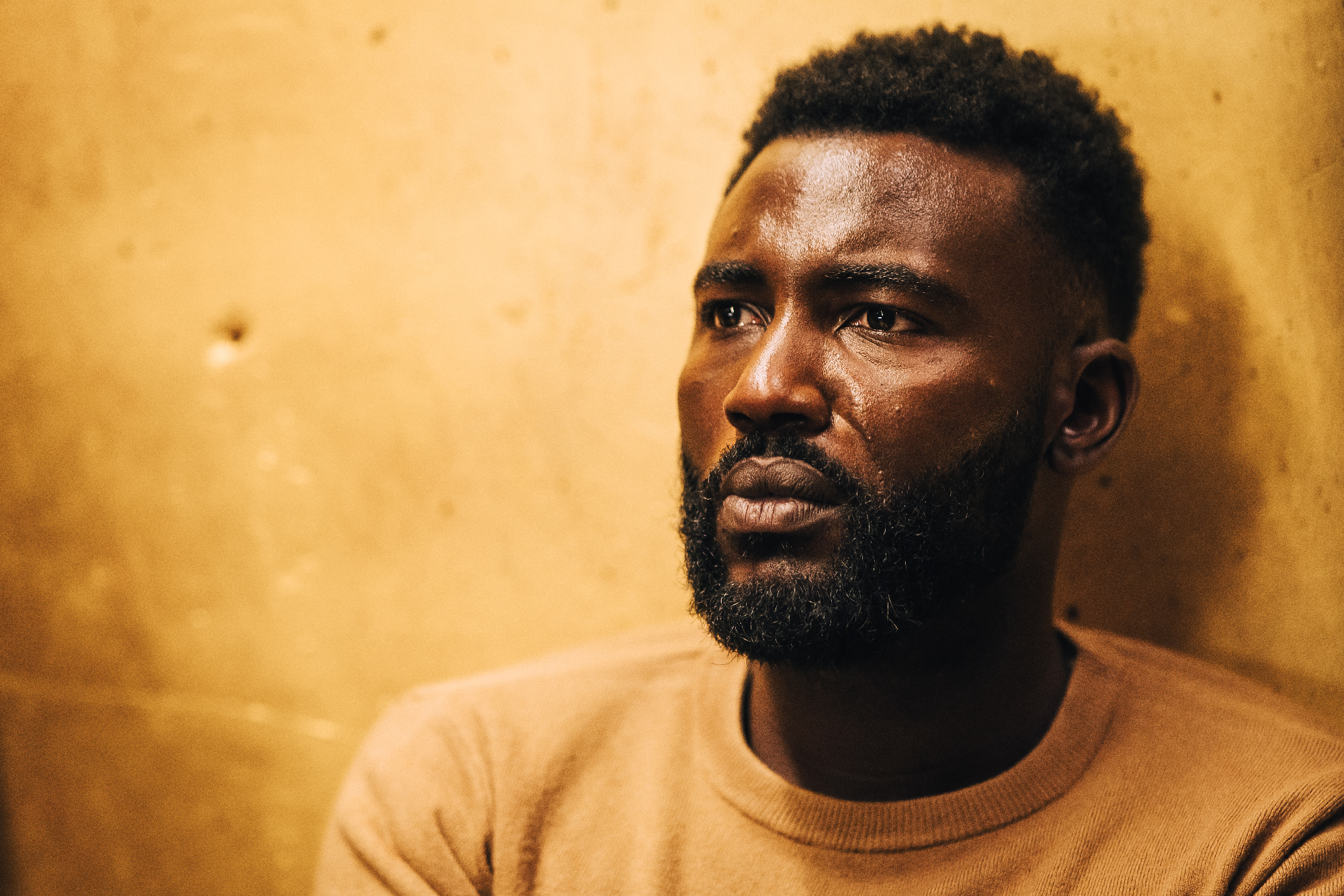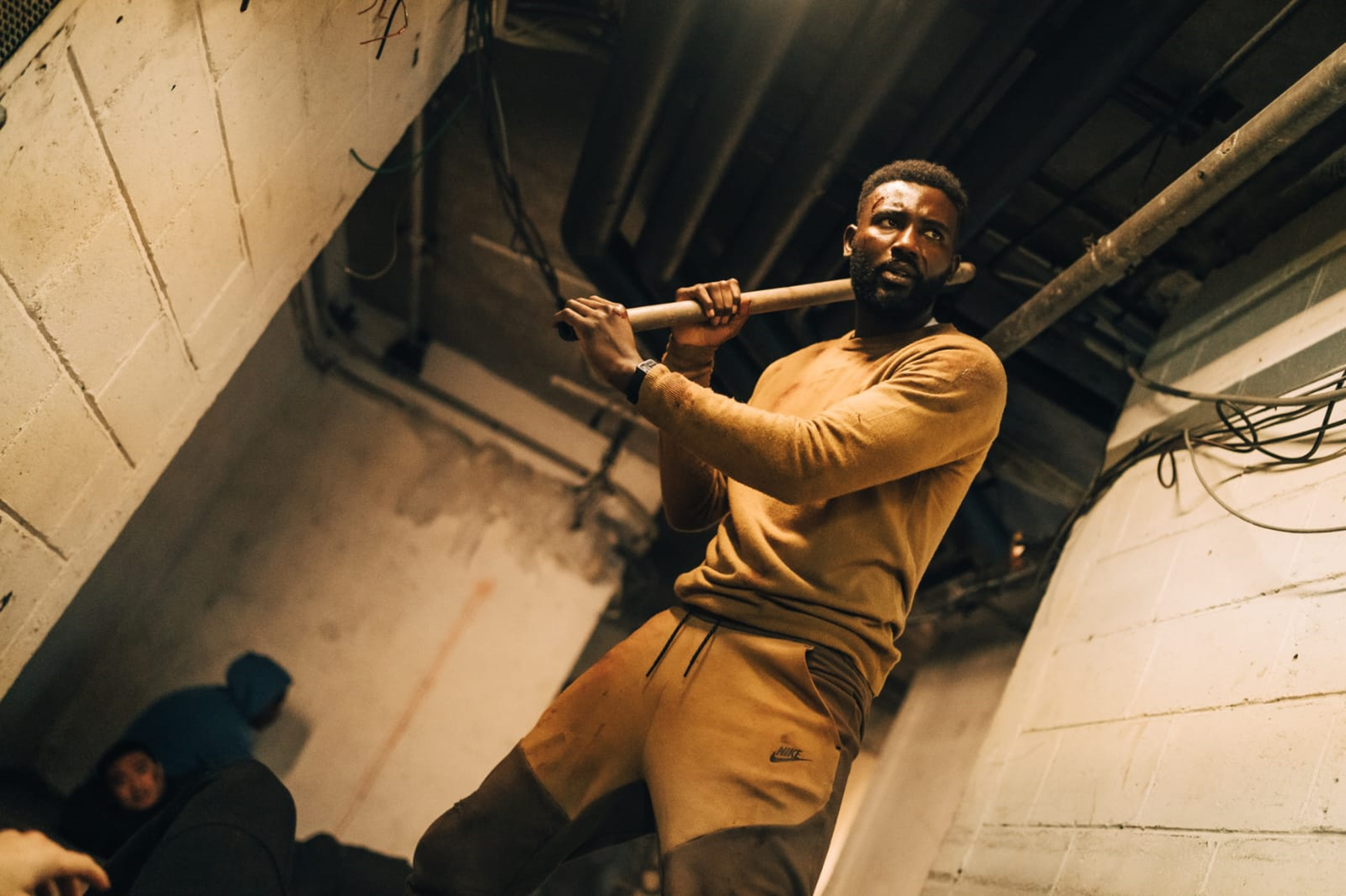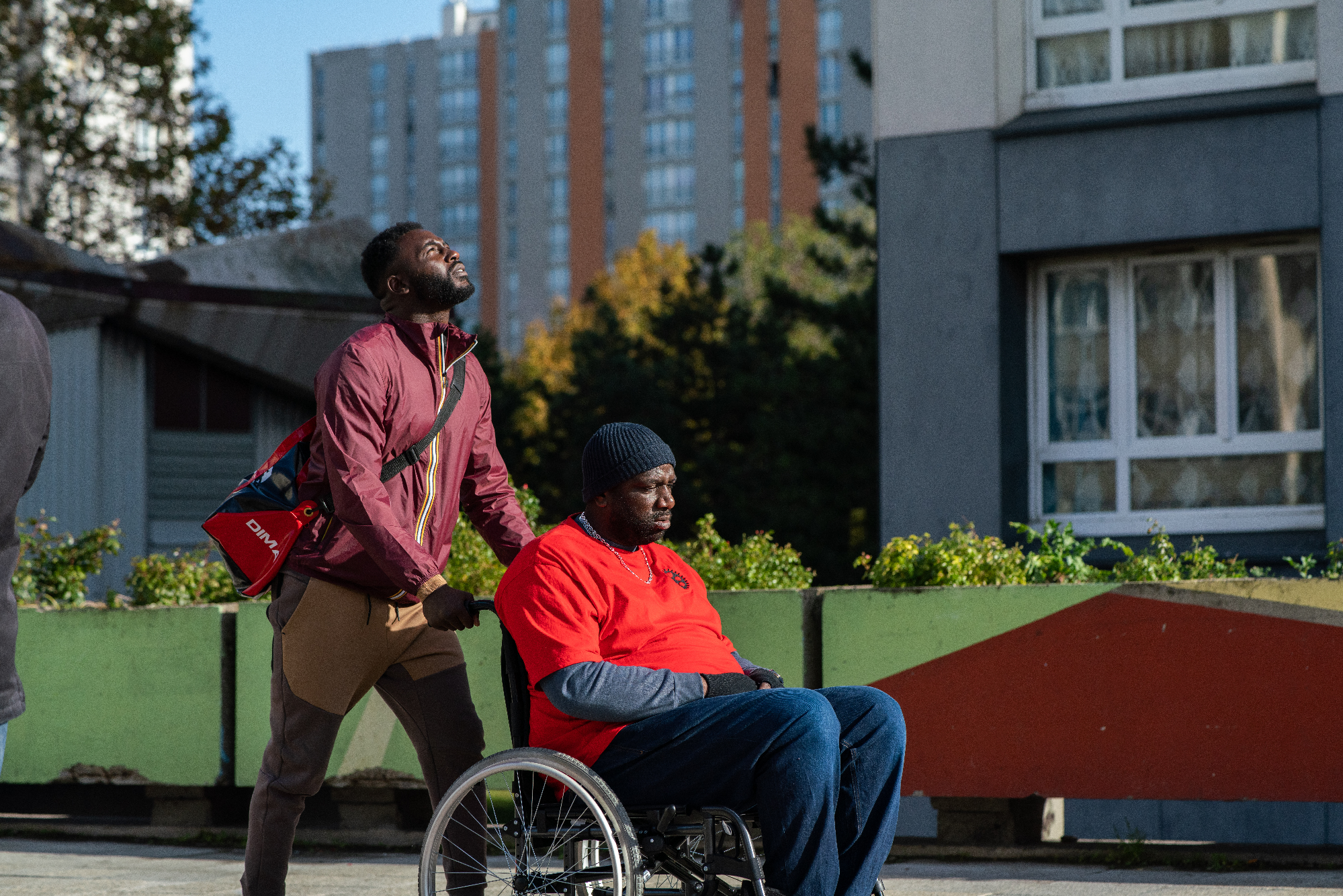Cedric Ido's wonderful new movie is reinventing the French suburbs genre
Paris's banlieue (suburbs) have long fascinated directors as evidenced in cult classics such as Mathieu Kassovitz’s La Haine and Ladj Ly’s Les Misérables. Now comes La Gravité, French-Burkinabe director Cedric Ido’s splendid sophomore effort, which lifts the genre above anything else we've seen so far. The film melds humour, science fiction and even camp into a grim tale of drug-dealing and disenchanted youths.
The story opens with an accident involving three children, killing one of them and leaving another handicapped. The victim reappears as Joshua (Steve Tientcheu); a gruff thirty-something, stuck in a wheelchair often pushed by his faithful little brother Daniel (Max Gomis), who takes him to their basement where he invents James Bond-worthy props. A former drug-dealing friend, Christophe (Jean Baptiste Anouman) is released from prison, and these three main characters become challenged by a new generation of drug dealers, the Ronins. This fearless, scarlet-haired gang have a taste for the esoteric, eerily circling the bleak courtyard of their neighbourhood on their scooters.
Bringing further foreboding to the movie is ‘the gravity’, an imminent, near-apocalyptical planet alignment. Throughout the story, the characters lift their eyes to scudding clouds appearing against a crimson sky and the monolithic blocks of the housing project they can never escape from. It thus becomes a metaphor for their own thwarted dreams - Joshua is a mad scientist, Daniel is a track-and-field runner, and Christophe is a gifted illustrator. The actors’ performances are all excellent (Gomis was long-listed in the Most Promising Actor category for this year’s César Awards) as La Gravité shapes up to scrutinise suburban thug life. This is a love letter to cinema by a talented director who has been honing his skills for two decades, now delivering his best work to date. In this exclusive interview, Ido discusses this new endeavour.
How did the initial idea for the movie come about?
I needed to find the sincerest and most authentic way to tell a part my reality. I wanted to pay tribute to all these neglected yet talented people in the suburbs, where I grew up. That is why all three protagonists have undeniable talents. But they struggle in a place where structural racism is so overwhelming that they convince themselves of being totally worthless to society. I was afraid to make another typical banlieue film, by being too frontal. I had to find the right allegory and poetry that would make my statement even stronger. So, I brought the power of gravity as a representation of the glass ceiling they can’t break through.
“I pay tribute to all these neglected yet talented people in the suburbs, where I grew up”
How long did it take to develop the film?
My producer Emma Javaux and I knew from the beginning that it wouldn’t be an easy project to finance, due to the fact that the film mixes several genres with a strong social backdrop. In addition to that, the main cast is almost entirely Black with no stars. It took us five years to complete the film but I’ve had that story in mind for such a long time.
The actors are marvellous. How did you choose them?
First of all, I wanted to cast actors who had a background with the banlieue. To me, it was necessary to be familiar with the codes, the trends and the habits from that area. I wanted a genuine performance from all of them. There are things you cannot fake.
The colours in the cinematography and styling gives a sensuality to the movie, especially the recurring reds. Can you tell us more?
I used that progressive red colour in the sky as a marker of the danger that is threatening everyone. It was also a way for me to make the gravity palpable, like a clock ticking over the protagonists’ heads. Some, like the Ronins, are aware of the danger, but the elders are not.
Can you tell us more about the influences of Asian cinema and culture in the film?
In order to make the confrontation more powerful, I borrowed some codes from old Japanese chambara and yakuza films, which represent a big part of my influences. In most of them, the hero faces the same issues that you can find in the banlieues, especially when it comes to codes of honour and turf wars. I love the way a director like Kinji Fukasaku treats his characters. I see Daniel as one of them, trying to run away from the violence until that is no longer possible.
Watching the movie, we tend to sympathise the leads and see the Ronins as the villains but in the end, there are no heroes. Is the message finally pessimistic?
I wanted to free myself from the constant Manichaeism of today's cinema. I'm mostly talking about the pitfalls of the glass ceiling through this complicated relationship between two generations. The question is, what am I leaving for those that will follow? We have the feeling that the next generations are struck by a sort of nihilism because they tripped to the system, and in return they create their own community. Fundamentalism may be that, ultimately: no longer believing in the outside. No longer even believing in any form of collective organisation.


